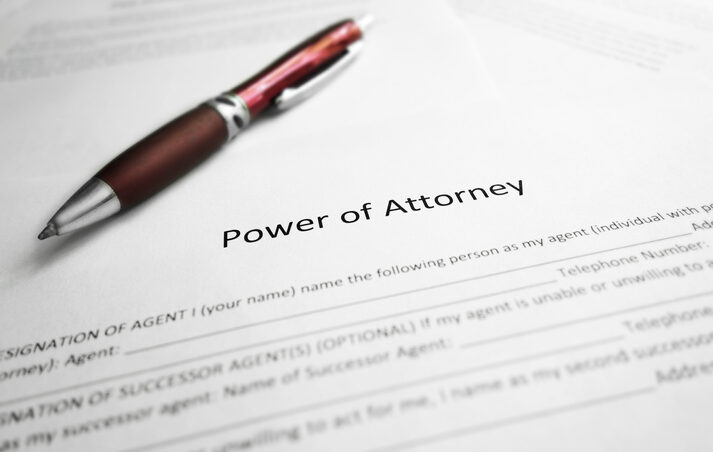Let’s look at appointing a power of attorney. Many people know the basics of what a Last Will and Testament is. What many people may not know is that a Will is only a part of a comprehensive “estate plan,” which should look to address not only what happens when you are gone but also ways to help your loved ones assist you at times when you need it most.
- Do you have a Power of Attorney?
- Do you know what they do?
- Do you know why you should have one as part of a comprehensive estate plan?
If your answer to these questions is not a firm “yes,” now is the time to talk to an estate planning attorney to assess your needs and goals.
Power of Attorney allows you to appoint someone to act on your behalf, including:
- Making health care decisions when you cannot;
- Managing finances;
- Operating a business;
- Transferring real estate;
- Much, much more – essentially anything you could do yourself.
So, what is a Power of Attorney? Essentially, it is a formal document in which you give power to another person to act on your behalf. That person is called your “agent,” and you are called the “principal.” Though the word attorney is right in the name, you do not need to appoint an attorney as an agent – but you should be consulting with a licensed attorney regarding the preparation of a Power of Attorney as part of your estate plan.
Powers of Attorney (also called “POAs”) come in many forms and have many purposes. They can be limited – say you need to designate a person to go sign a specific real estate document on your behalf. They can also be general, granting broad power to a trusted person to act on your behalf, sometimes in situations where you cannot act yourself. They can be for financial matters or they can be for making healthcare decisions. The important thing to know is that Powers of Attorney let you appoint someone to help you get something done by acting in your place.
When are they most important? POAs have many important roles, but perhaps chief among them is what an appropriately prepared POA can do should you ever become incapacitated. In the event that you should ever become incapacitated, whether physically or mentally, it is often crucial to have someone act on your behalf. If you have not planned, this usually means a legal guardian has to be appointed by the courts (see our other pages discussing guardianships for more information). However, a properly crafted POA allows you to appoint an “agent” to immediately step in and act in your place, signing documents, managing finances, paying bills – all without your loved ones having to wait on a lengthy court appointment process.
Is a Power of Attorney right for you? Useful tools that they are, it is important that you discuss their appropriateness with a qualified professional. Powers of Attorney give broad powers for someone to act on your behalf, so it is important to discuss with your estate attorney whom you trust with such powers and what limitations should be in place. Even if you have an older existing Power of Attorney, it may be time to review it to see if it is time to revoke or replace it.
Contact the firm of Barry, Corrado, and Grassi today to discuss Powers of Attorney as part of your estate plan.

